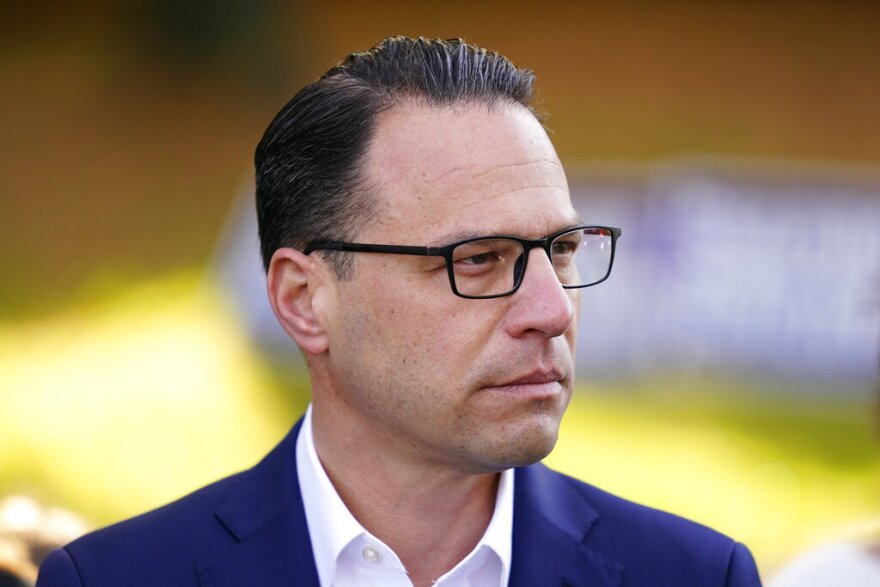HARRISBURG, Pa. (AP) — Gov. Josh Shapiro plans next month to propose steps toward fixing a higher education system in Pennsylvania that is among the worst in the nation in affordability, his administration said Friday.
The administration didn't release many specifics and said the Democratic governor would give more details in his Feb. 6 budget address.
By just about every measure there is, Pennsylvania is ranked at the bottom among states in the level of higher education aid, size of student debt and affordability of its colleges. Pennsylvania spends less per capita on higher education aid than any other state except New Hampshire, Shapiro's administration said.
This year's state government spending of about $2 billion on higher education is about the same as it was 15 years ago.
In his budget, Shapiro will propose “significant” aid for state-owned universities, community colleges and their students, the administration said.
The 14 state-owned universities and 15 independent community colleges should be united under a governance system that improves coordination between the schools and limits the competition and duplication between them, the administration said.
After that, Shapiro wants to cut tuition and fees to no more than $1,000 per semester for Pennsylvania students who attend a state-owned university and have a household income under the state median of about $70,000.
The administration could not immediately say how much money that would require, or where that amount of aid would place Pennsylvania in state rankings.
Eventually, the state would develop an aid formula rewarding higher education institutions for factors including growing enrollment and graduation rate, the administration said.
Schools would get incentives to recruit and support students to complete degrees and earn credentials in growing fields and fields with workforce shortages, the administration said.
The ideas sprang from a working group of college and university presidents that were assembled last year by the Shapiro administration.
Reaction to the proposal was coming in from all quarters.
State Rep. Peter Schweyer, D-Lehigh, applauded Shapiro.
"A student starting their journey at one of our community colleges and deciding to move to a state system college shouldn't need to add a year of classes — and tuition — to their plan," said Schweyer, majority chairman of the House Education Committee. "Students shouldn't have to equate a better future with decades of debt."
State Rep. Seth Grove, R-York, said Shapiro's blueprint isn't realistic. Grove, who is Republican chairman of the House Appropriations Committee, said the required spending for the plan is unsustainable, eliminates a $12 billion surplus and leaves families and businesses on the hook for future tax increases.
"The bottom line is this plan creates more bureaucracy, necessitates more spending and creates more questions than answers," Grove said.

